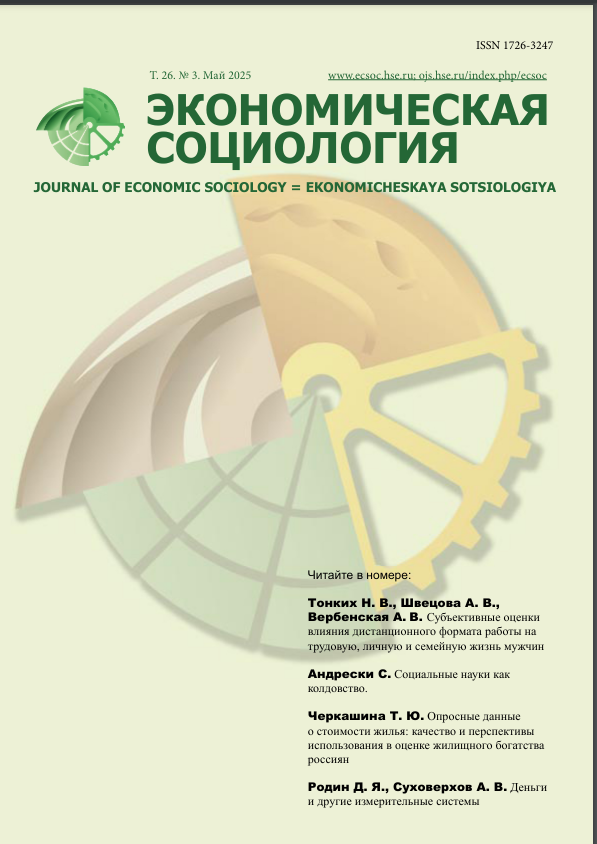Subjective Assessments of the Impact of Remote Work on the Work, Personal and Family Life of Men
Abstract
Remote employment has undergone a process of cognitive and social normalization, evolving from an emergency pandemic circumstance into an element of everyday reality and a convenient, flexible work format. The main objective of this study is to assess the impact of remote employment on various aspects of men’s lives by calculating integral tonality indices that characterize positive, neutral, or negative changes in key life domains. The empirical base draws on data from a survey of men conducted in 2023 using an online questionnaire distributed through internal electronic services of large enterprises. The sample included respondents from six federal districts (N = 314). Participants were men aged 18 to 60 years with experience in remote employment. The methodology and approach are similar to a study conducted in 2022 that examined the impact of remote employment on various aspects of women’s lives (N = 589). The results indicate that the remote work format has a positive effect on most parameters of men’s work, family-parental, and personal life. The highest positive values of the integral index were observed in men’s assessments of changes in the areas of “rest and communication with friends,” “cultural and social life,” “education and development of children.” Fathers of children under 14 years old were significantly more likely to give positive evaluations of the remote work format, which was also perceived more favorably by younger men under 35. A comparison of men’s and women’s assessments revealed that women tend to assess the impact of remote work more critically. While women view the transition to remote work as an opportunity to devote more time to organizing everyday life, men more often see it as an opportunity to increase time for rest and social communication.













